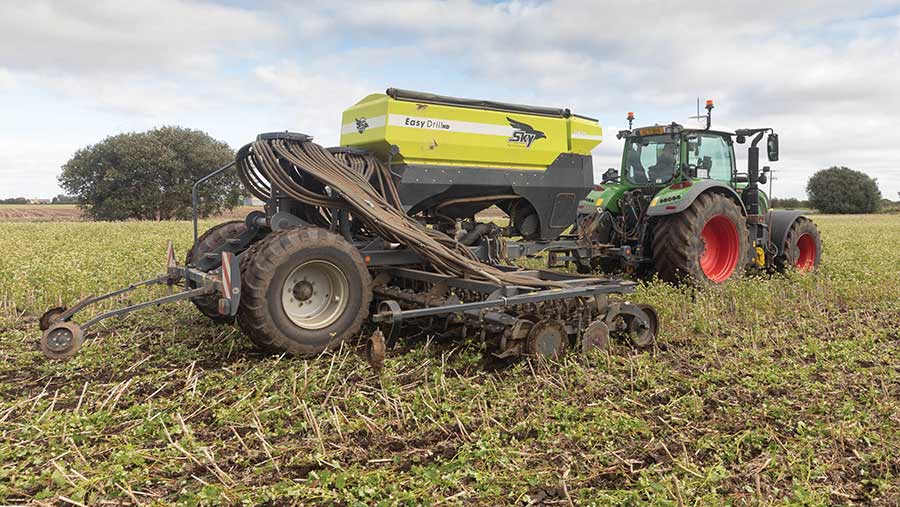Defra to unveil new SFI actions at Oxford conferences
 © Tim Scrivener
© Tim Scrivener A raft of new measures under the Sustainable Farming Incentive to improve productivity and resilience on farms across England is set to be unveiled at next week’s Oxford Farming Conference.
Defra ministers are putting the final touches to the announcement, with sources indicating it will include a “significant” number of new actions for the Sustainable Farming Incentive (SFI) in 2024, including increased payment rates and actions to reward farmers for delivering public goods.
See also: SFI 2023 – the support options for arable growers
Farmers Weekly understands the additional options to be introduced will include precision farming, an expanded offer for the uplands and moorlands, and more actions for protecting water, including buffer strips and cover crops.
Further details about the UK government’s vision for its agricultural transition plan and Environmental Land Management schemes are also expected to be released at the Oxford conference, which takes place from 3-5 January.
Update
Defra secretary Steve Barclay will deliver an update on the SFI 2024 offer when he addresses delegates at the conference on Thursday 4 January.
Farming minister Mark Spencer has also been confirmed to attend the Oxford Real Farming Conference, which is being held on the same day at Oxford Town Hall.
But Farmers Weekly understands the SFI 2024 actions will only be available from the summer, meaning farmers will not be able to receive income until next winter at the earliest – unless Defra decides to introduce accelerated payments again, as it did this year.
A source said: “SFI 23 offered little value for grassland and upland farmers, and although more options with better value are coming on board, being rewarded for delivering those actions won’t happen until at least the end of next year.”
Tenant Farmers Association chief executive George Dunn said it was “hugely frustrating” that the SFI and Countryside Stewardship Plus continue to stutter forward, while the removal of the Basic Payment Scheme “progresses with apparent ease”.
Briefings
Ahead of the conferences, senior Defra officials will host internal briefings for staff, arms-length bodies including the Rural Payments Agency (RPA) and Natural England, and the top 30 external stakeholders on 2 January so they are sighted on the impending announcements at the Oxford farming events.
By creating more opportunities, ministers hope more farmers will be incentivised to sign up.
However, industry concerns about the slow uptake of the SFI and the capacity of the RPA to process applications persist.
As of 18 December, just under 5,300 SFI 23 applications had been submitted, of which 2,200 had been started – a fraction of the 82,000 farmers in England eligible for the scheme.
Martin Lines, chief executive of the Nature Friendly Farming Network, said he looked forward to hearing more details on the SFI for 2024, where farmers will get paid for “delivering public goods that lead to environmental improvement and long-term food security”.
“The SFI should not be seen as subsidising food production. The long-term vision of Environmental Land Management is to deliver environmental improvements and public goods alongside a market for food production,” he insisted.
But NFU vice-president David Exwood said Defra must strike a better balance between policies that focus on enhancing food production, not just the environment.
“The SFI needs to have farming at its core and if it doesn’t have enough options which sit around productive farming, that’s a problem for the scheme,” he added.
A Defra spokesperson confirmed that Mr Barclay will deliver an update on the SFI 2024 offer at the Oxford Farming Conference.
